Top 10 High Caffeine Teas to Try
This post may contain affiliate links. Simple Loose Leaf is a participant in the Amazon Associates Program, an affiliate advertising program designed to provide a means for sites to earn advertising fees by linking to Amazon.com. Trying to find the best alternative to coffee or energy drinks? If you are still not ready to give up caffeine for good and need your morning energy boost in a cup, tea is a wonderful alternative. All real teas contain caffeine, and some herbal teas such as Yerba Mate contain it too. Find out which are the top 10 high caffeine teas to try to, and how to recognize tea with a high caffeine level.
Why drink high caffeine tea over coffee?
There are several reasons you may want to drink tea instead of a cup of coffee. Firstly, tea is unlikely to give you the jitters. Tea generally contains less caffeine than coffee, which makes it more difficult to “overdose” on caffeine. Next, tea doesn’t need to be bitter, especially if you brew it correctly. There are thousands of different flavors to enjoy, and you are likely to find the one you enjoy the most. Tea may offer other health benefits too, such as antioxidant activity, promoting weight loss, anti inflammatory activity and others.Effects of high caffeine from tea
Unlike coffee, caffeine in tea won’t give you the jitters. It will give a more sustained energy throughout the day. In fact, drinking tea may even help you feel more rested the following day. Tea contains L-theanine, one of amino acids that contribute to the feeling of calmness. L-theanine is present in all types of tea except pu’erh. Some pu’erhs like raw pu’erh will have more L-theanine than ripe pu’erh, which may not have L-theanine at all[1]. Both green, black, oolong and white teas may contain high and low levels of this amino acid. Studies showed that high mountain teas may contain more L-theanine than low grown teas[2]. Combined, caffeine and L-theanine may help improve performance, including speed and focus[3]. Studies showed that together, they may reduce headaches, fatigue and increase alertness and faster reactions than caffeine alone[4]. High-caffeine, high-L-theanine tea may be a great option if you want a strong sustained energy boost.What will influence caffeine content in tea?
It’s almost impossible to say how much caffeine will your cup of tea contain. It’s a common misconception that a cup of black tea will always contain the most caffeine, while the cup of white tea will be very gentle and almost caffeine-free. In fact, some green and white teas may contain more caffeine than black teas. One study concluded that tea made from Camellia sinensis tea plant may have around 14.3 to 34.8 milligrams of caffeine per gram of leaf[5]. If you are using 5 grams of leaves, they may contain up to 174 mg of caffeine. However, not all of it will be extracted. Caffeine content in tea will depend on many factors:1. Tea plant
All real tea is made from the same plant – Camellia sinensis. However, there are different varieties of Camellia sinensis and many cultivars too. Some will contain more caffeine from the others. For example, Camellia sinensis var sinensis is generally considered lower in caffeine than Camelia sinensis var assamica – but that doesn’t always need to be the case. All Camellia sinensis plants contain caffeine – except one. A recently discovered wild tea plant called HongYaCha is a naturally caffeine free. Other species from the Camellia botanical genus are used for making real tea too, even though we usually say all tea is made from Camellia sinensis only. For example, Camellia taliensis or naturally caffeine free Camellia Ptilophylla Chang[6].2. Growing conditions
Growing conditions will influence the caffeine content too. A great example is Gyokuro tea. Gyokuro is shaded for 2-4 weeks prior to harvesting. Shading increases caffeine content and reduces the levels of some other compounds[7]. Other shaded teas are kabusecha, matcha, tencha and sometimes even sencha.3. Harvesting method
Caffeine content will depend on when the leaves are harvested, and which leaves are harvested. For example, larger, more mature leaves will contain less caffeine than younger leaves. A good example is Japanese bancha made from older tea leaves. Buds contain more caffeine, so it’s possible that your white Silver Needle has more caffeine than some green teas–for example, bancha.4. Processing methods
Different processing methods will cause different colors, shapes, flavors and scents. But they will also influence the caffeine content. For example, roasting may reduce the caffeine content furthermore. Leaf size will have a final say on the caffeine content as well. The smaller the particles, the more caffeine will be extracted with brewing. Sometimes, tea bags may give a cup with more caffeine than loose leaf tea.5. Storage conditions
Storage conditions will influence the chemical composition of your tea, including levels of different compounds, flavor and scent. Always store tea properly, away from direct sunlight, humidity, mold and intense scents.6. Brewing technique
Caffeine is best extracted using hotter water. Therefore, if you are not re-steeping your tea leaves and if you pay attention to steeping time, you are likely to extract more caffeine from black tea than from green tea. The longer you steep the leaves, the more caffeine you will extract. 5 minutes steep is likely to extract double the amount of caffeine than 1 minute steep[8]. By using more loose leaf tea per cup of water, you will extract more caffeine too. Matcha is another good example of a tea with high amounts of caffeine. It’s made from younger leaves, shaded, and powdered–so you don’t steep the leaves, but dilute them instead. This means, no extraction in hot water is required.Top 10 Caffeinated Teas to Try
If you are looking for high-caffeine teas, try these:1. Assam Black FTGFOP black tea
The highest grade of Assam tea, full of golden buds, mellowness, richness and maltiness, with a sweet aftertaste and a high caffeine content.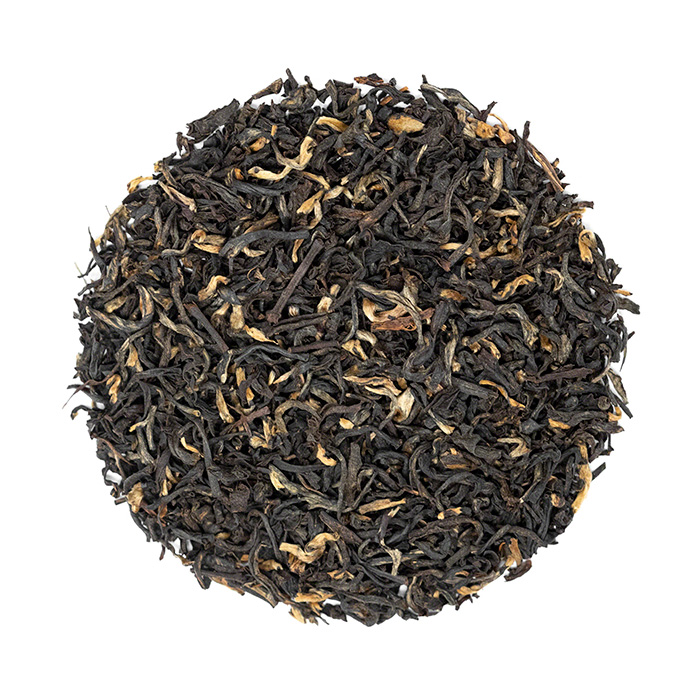
Assam Black FTGFOP
2. Summer Nights black tea
Rich and savory blend made to make you fall in love with tea all over again, not only to enjoy the high caffeinated drink. Caramel, toffee, brown sugar, summer night’s smoke, cinnamon, cocoa, marshmallows, pancakes with maple syrup on the back porch on an early foggy morning–Summer Nights is all that and much more.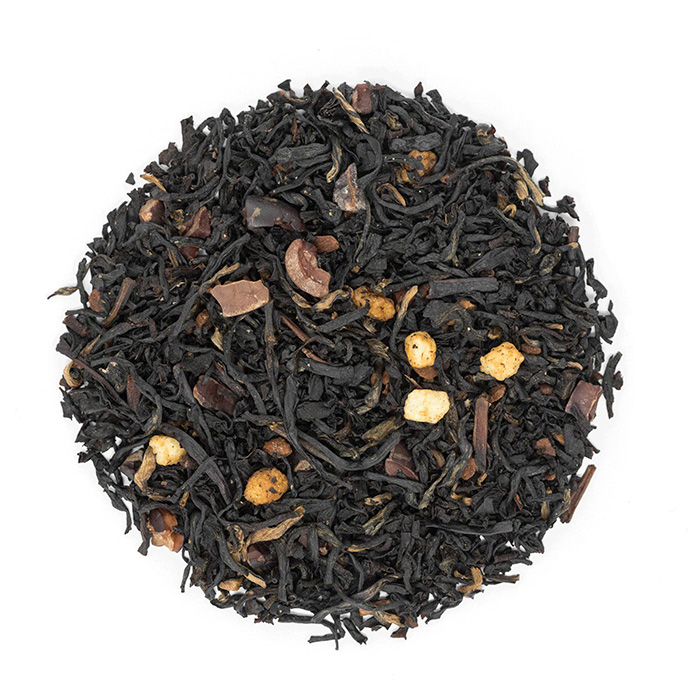
Summer Nights black tea blend
3. Purple Jasmine Tea
A blend of jasmine green tea and the new type of tea from Kenya called purple tea. This tea is made from new tea plants, with high levels of anthocyanin - the same antioxidant found in blueberries, red cabbage or black currants. High caffeine and high potential health benefits.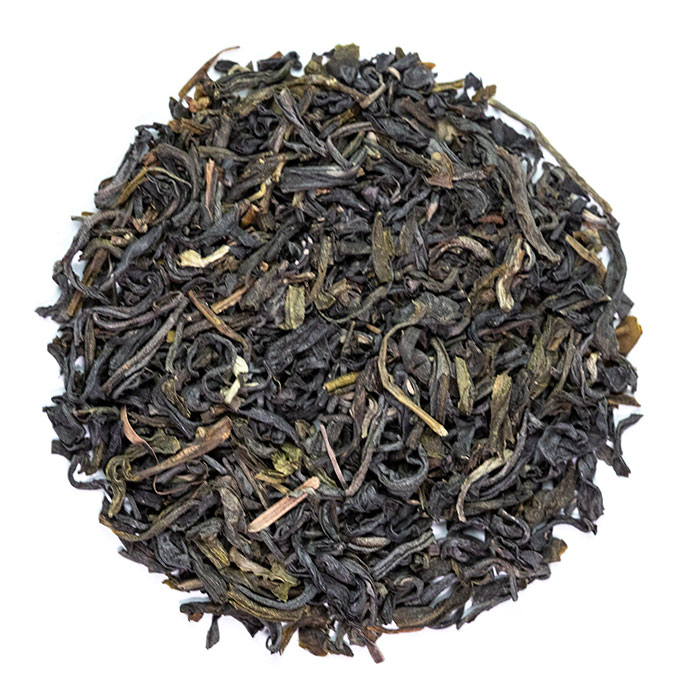
Purple Jasmine tea
4. Japanese sencha green tea
A real classic in the world of green tea, Japanese sencha is a must try if you love vegetal, fresh and green flavors. Steamed Japanese senchas usually contain higher amounts of caffeine than many pan-fired teas.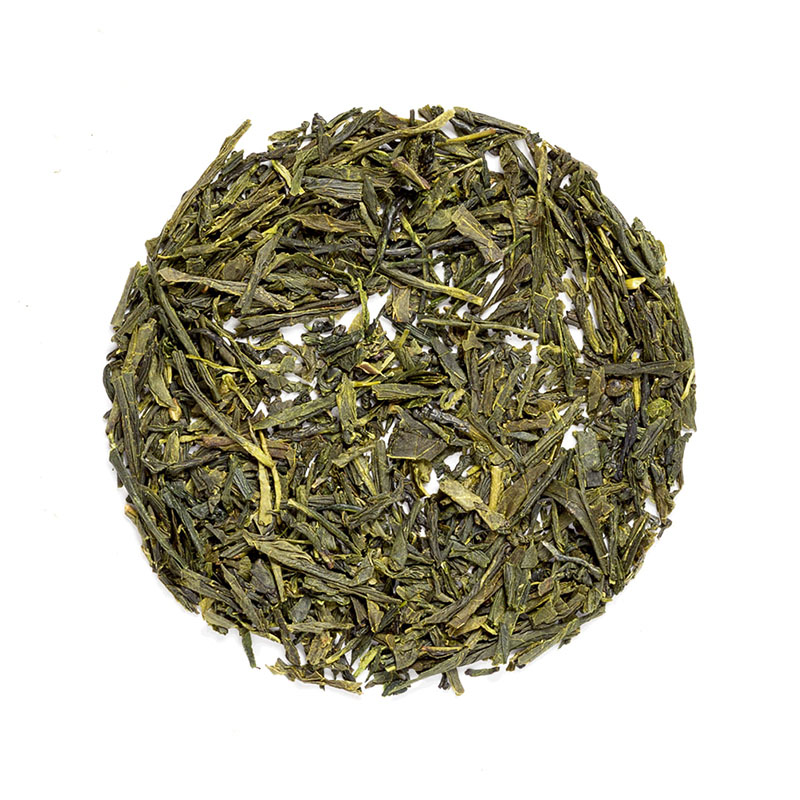
Japanese sencha green tea
5. Golden Mangalam black tea
Malty and rich Assam tea with lots of golden tips, smaller leaves and high caffeine content.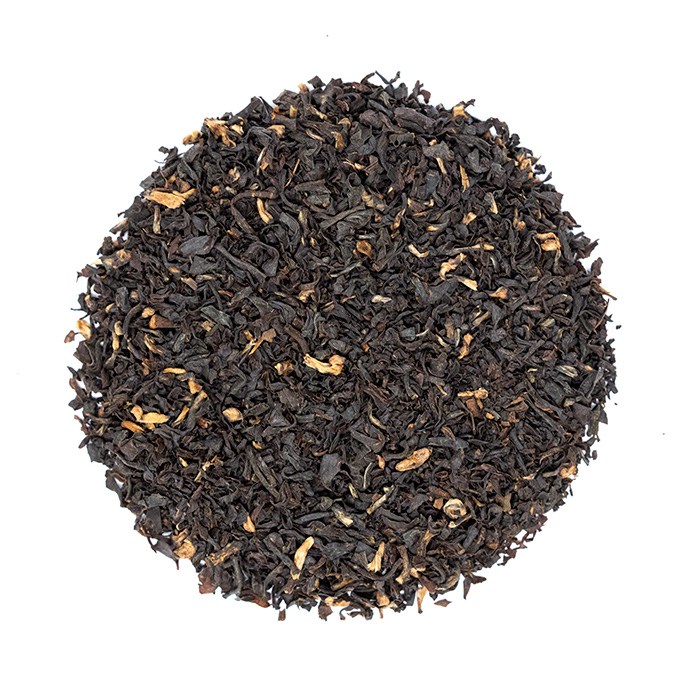
Golden Mangalam black tea
6. Kenya GFOP black tea
Beautiful strong and smooth black tea from Kenya that ideal for mornings. 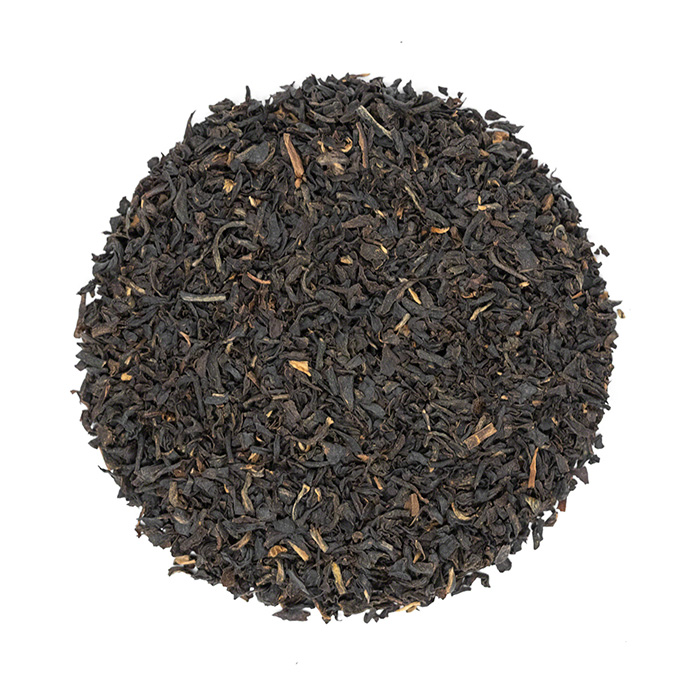
Kenya GFOP loose leaf tea
7. White Monkey green tea
Organic Chinese tea with fluffy white buds with a sweet and lightly floral flavor, but high caffeine content.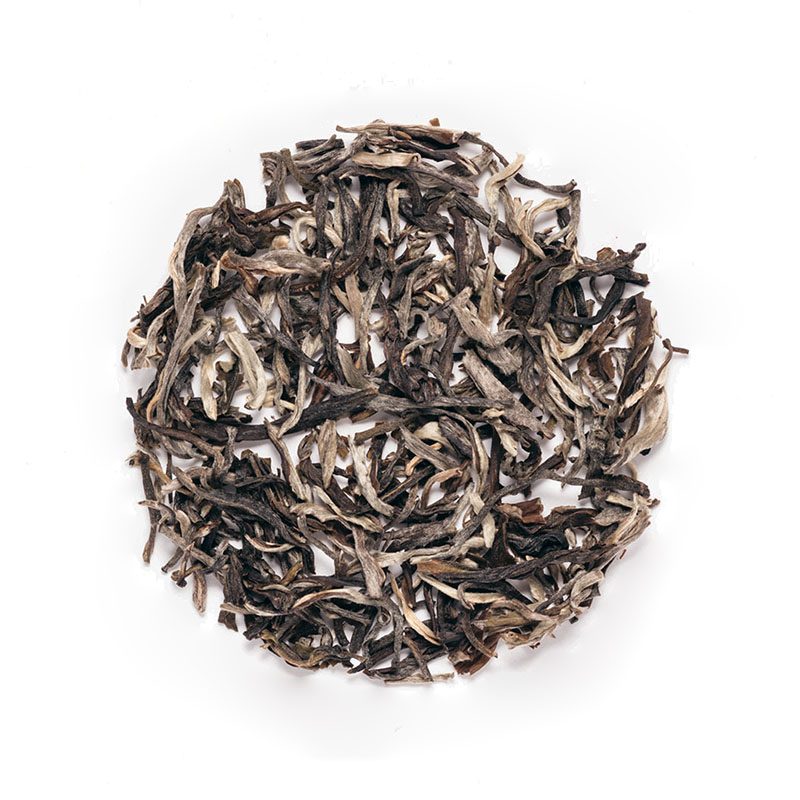
Whit Monkey green tea
8. Makaibari Estate Green tea
A true little gem, different from vegetal Japanese or toasty Chinese green teas. It’s strong, but not bitter, and brews into a smooth and flavorful cup. Indian green teas are likely to have highest caffeine among green teas. Plus, it’s one of rare green teas that you can use for making green tea lattes.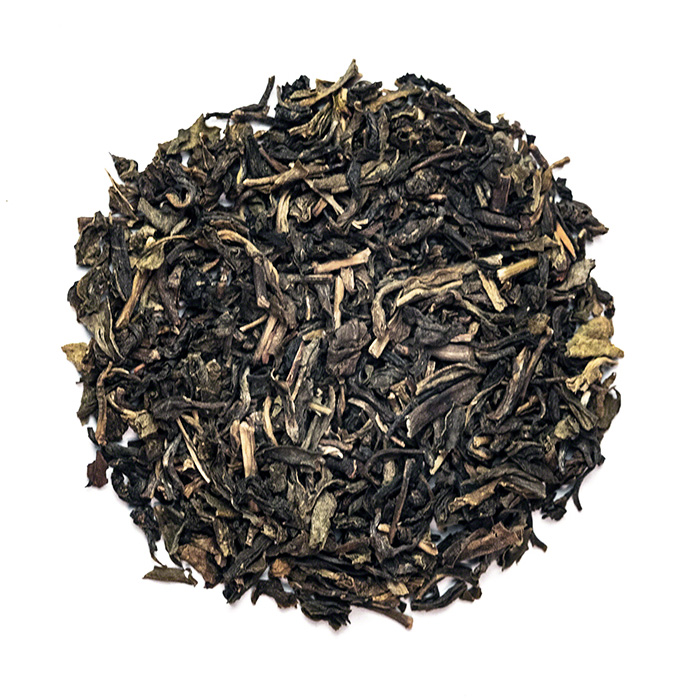
Makaibari Estate green tea
9. Organic Assam black tea
Another rich and malty Assam delight with a lot of caffeine and even more flavor.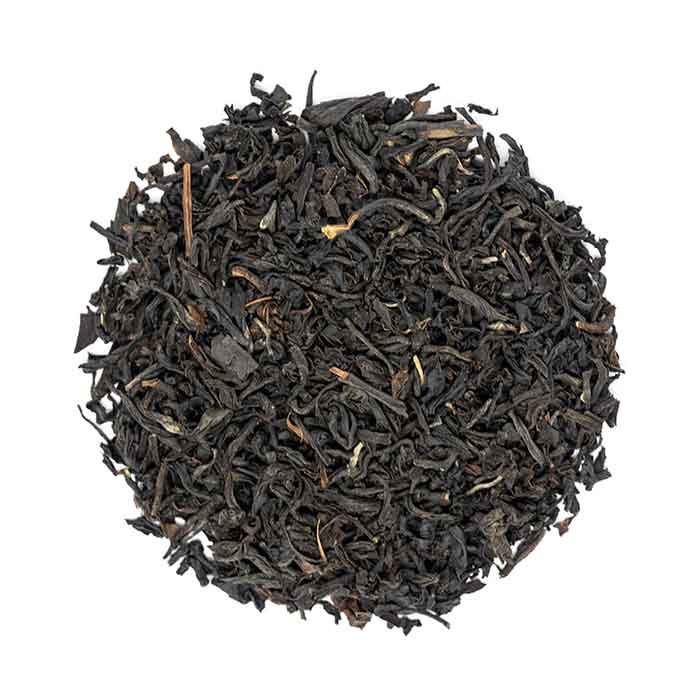
Organic Assam orthodox black tea
10. Everest Breakfast black tea
Complex, bold and robust. This interesting take on breakfast teas is high in caffeine and so full-bodied that you can drink it with whipped cream.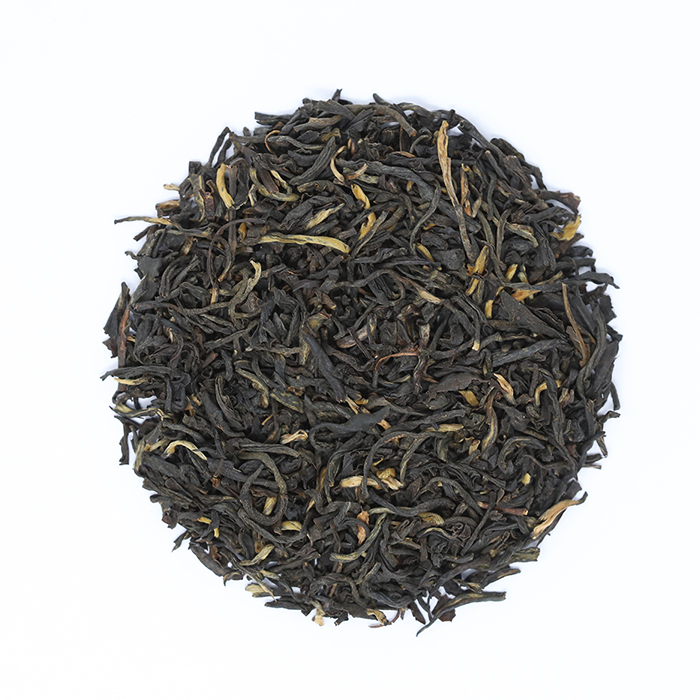
Everest Breakfast, a blend of Assam and Yunnan teas
Which herbal teas contain caffeine?
Caffeine in herbal teas is rare, and only a few plants that contain caffeine are used for making tea. The most popular caffeinated herbal tea is south American Yerba Mate. However, unlike the common belief, yerba mate is not particularly high in caffeine. It contains from 6.1 to 13.2 milligrams of caffeine per gram of tea[9]. This is still lower that the lowest amount in many common real teas. Yaupon and Guayusa also contain caffeine and have recently been gaining a lot of popularity. Studies showed that Guayusa has about 32.8 milligrans[10] of caffeine per gram of tea, which could make it a better alternative in terms of caffeine to yerba mate.Disclaimer: This article is for informational purposes only. It’s not intended to replace medical advice, diagnosis or treatment. Every person is different and may react to different herbs and teas differently. Never use teas or herbs to treat serious medical conditions on your own. Always seek professional medical advice before choosing home remedies.
References:
[1] https://www.ncbi.nlm.nih.gov/pmc/articles/PMC4787341/ [2] https://www.researchgate.net/publication/51425942_Determination_of_Theanine_GABA_and_Other_Amino_Acids_in_Green_Oolong_Black_and_Pu-erh_Teas_with_Dabsylation_and_High-Performance_Liquid_Chromatography [3] https://pubmed.ncbi.nlm.nih.gov/18681988/ [4] https://www.sciencedirect.com/science/article/abs/pii/S0301051107001573 [5] https://www.scielo.br/pdf/cta/v38n4/0101-2061-cta-1678-457X12217.pdf [6] https://agris.fao.org/agris-search/search.do?recordID=US201900030683 [7] https://onlinelibrary.wiley.com/doi/abs/10.1002/jsfa.9112 [8] https://www.researchgate.net/publication/23471909_Caffeine_Content_of_Brewed_Teas [9] https://www.scielo.br/pdf/cta/v38n4/0101-2061-cta-1678-457X12217.pdf [10] https://www.sciencedirect.com/science/article/pii/S0278584618301726
More from:
SLL


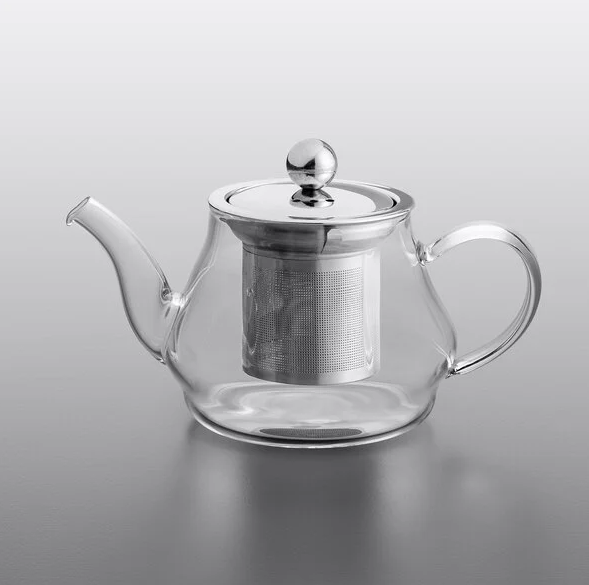

Leave a comment